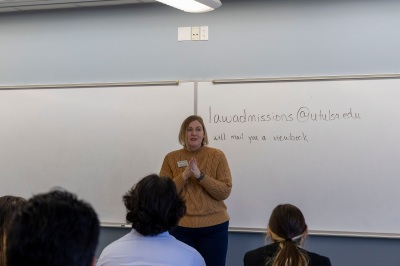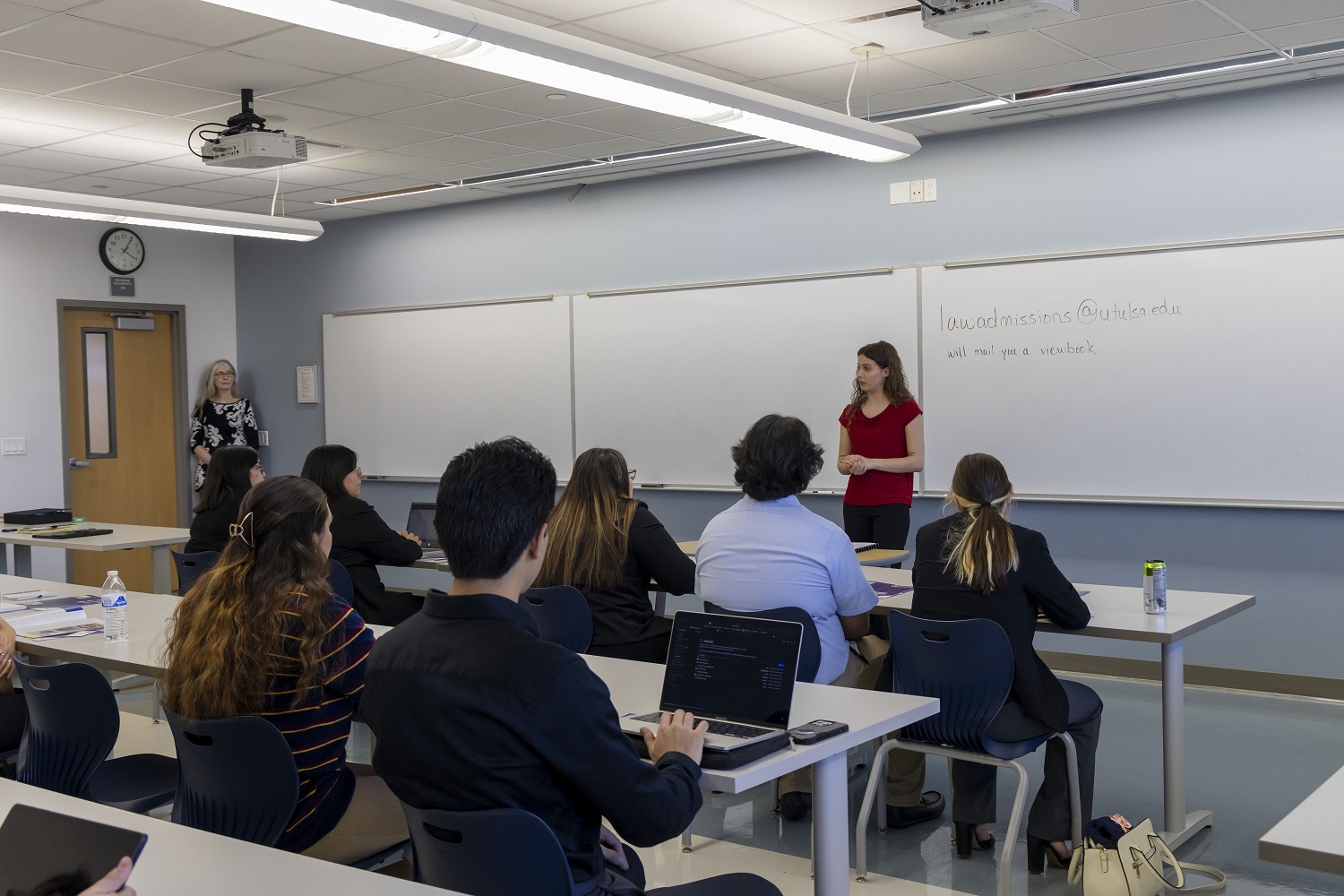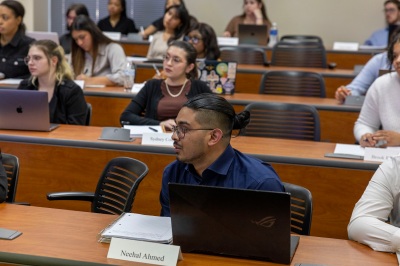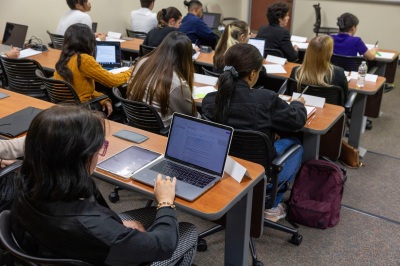Pre-Law Society
McKenna Nonnenmann
Although the PLS has been involved in several informal events this spring, our first official meeting was February 21. And what a meeting! We had the honor of hosting two past Pre-Law Society presidents: Victoria McClendon, a first-year attorney; and Quinn Kobrin. a third-year law student at the University of New Hampshire. We also had the pleasure of having Blake Roach, an Associate Legislature Director at the Texas Farm Bureau, back on campus.

Our meeting started off well, as we learned that we had 96 members, our highest-ever membership total!





The meeting continued on this note, as McClendon and Kobrin offered great advice on what law school is like. “It hits everyone like a brick wall,” noted Kobrin. Noting that undergraduate classes at SHSU are nothing like law school, McClendon and Kobrin suggested going out of our way to take challenging courses that teach us to think critically, read a lot, and to write.

Blake Roach also offered much-valued advice. He described his time as an advance-man for Greg Abbott, teaching him skills in preparation, event planning, research, flexibility, and networking.

All members of the panel encouraged students to push themselves, to get out of their comfort zones so that they can navigate more comfortably in the professional world. Going to professional events, taking on internships, working professional jobs, surrounding yourself with other professional students all work to make you more successful in the long run.

The meeting ended on a high note. After several years of fundraising–including work done by our past Presidents (including, of course, Victoria McClendon and Quinn Kobrin), we were able to donate $25,000 to SHSU to endow a scholarship. We closed the meeting with a “check presentation.”

Thanks to all our great panelists, and to all those who joined (or rejoined) PLS this semester. For future events or information, visit our Instagram @prelawshsu or email President Olivia Discon: ojd004@shsu.edu.

Our next meeting is March 20 at 6pm!
As a special note, we’d also like to thank all of our PLS Presidents who have helped us achieve this endowment: Megan Chapa (our first PLS President), Kaitlyn Tyra, Victoria McClendon, Quinn Kobrin, Heather Noman, Yvette Mendoza, Jade Miller, and Olivia Discon.
















































